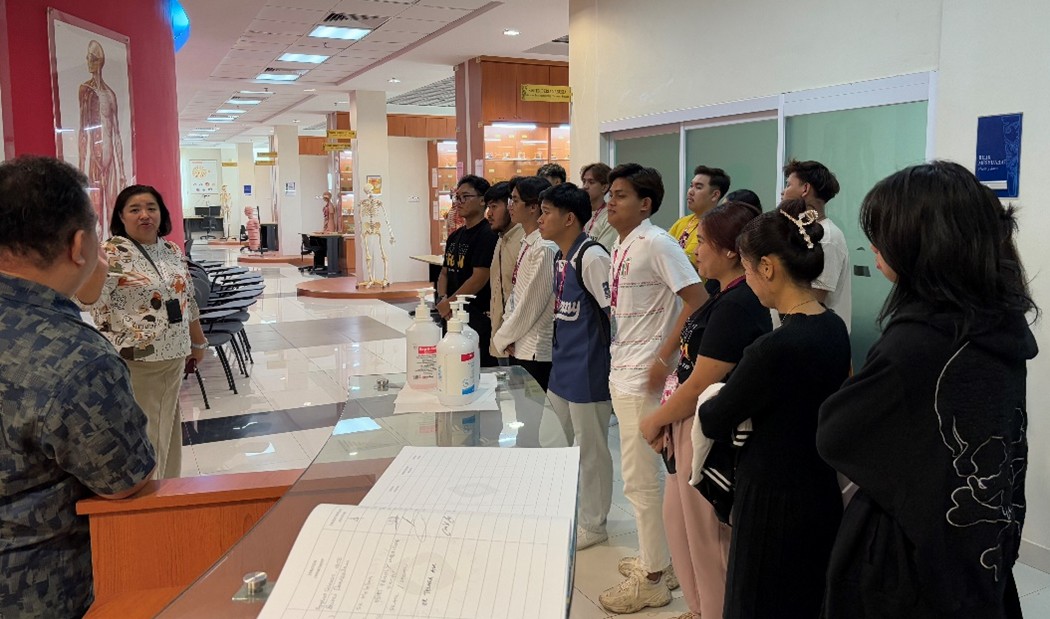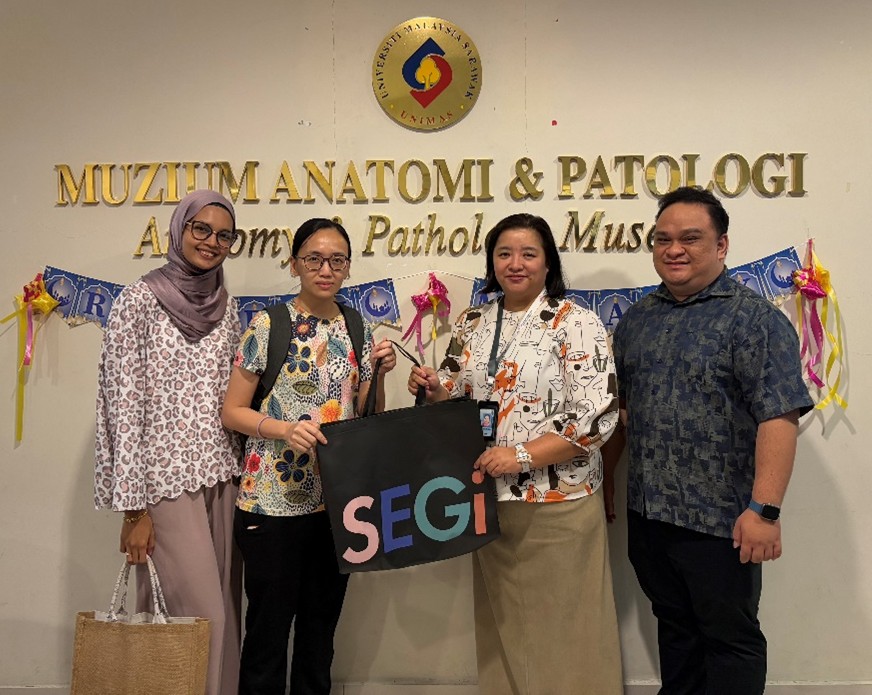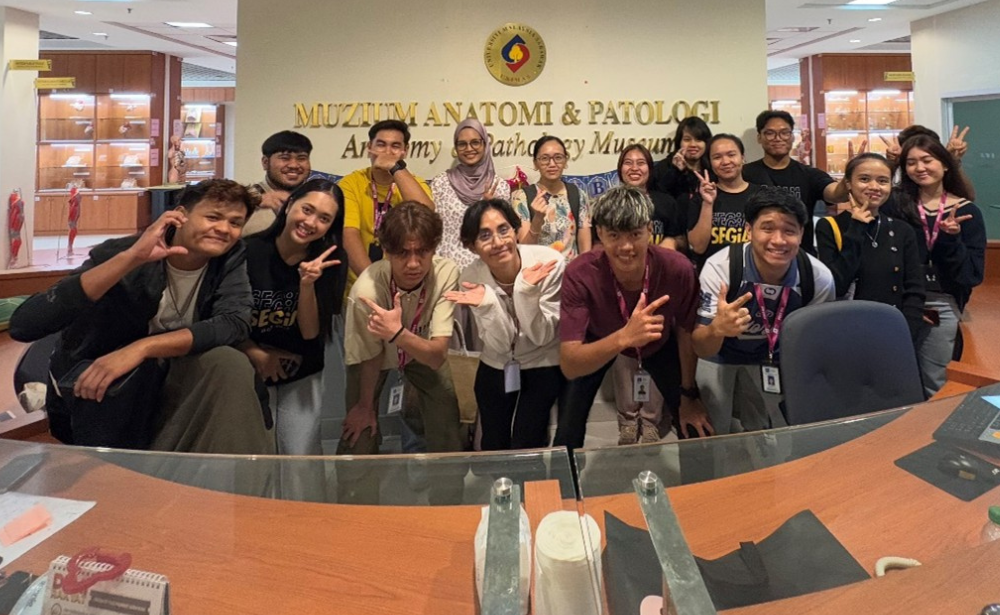Fifteen students and two lecturers from the Faculty of Allied Health visited the Anatomy and Pathology Museum at the Faculty of Medicine and Health Sciences, Universiti Malaysia Sarawak (UNIMAS) on 17 April 2025. The students, from the Diploma in Medical Laboratory Technology and Diploma in Occupational Safety and Health programmes, are currently taking the Anatomy and Physiology subject as part of their semester studies, and the visit was designed to enhance their classroom learning through hands-on exposure.
SEGi College Sarawak views industrial-to-classroom initiatives such as this as an important way to bridge academic study with practical applications. Divided into smaller groups, the students toured the museum under the guidance of its personnel, learning about human specimen processing while engaging in interactive Q&A sessions. The experience gave students a chance to visualise and connect theoretical knowledge with real anatomical structures, including organ placement, skeletal systems, and physiological processes.
The Anatomy and Pathology Museum houses an extensive collection of meticulously preserved human specimens, highlighting both anatomical variations and pathological conditions. Such facilities offer invaluable learning experiences to health science students, enabling them to develop a deeper understanding of the human body and the medical conditions that affect it. According to the World Health Organization, non-communicable diseases account for nearly 74% of global deaths, underscoring the importance of medical education and awareness of human pathology in equipping future professionals to address these challenges.
The two-hour visit concluded with a group photo and a presentation of a souvenir to the museum personnel in appreciation of their support. Feedback from the students was overwhelmingly positive, with many highlighting how the interactive approach reinforced their interest and confidence in the subject. Field trips of this nature not only promote deeper engagement but also enhance student motivation by connecting theory to real-world applications.
By fostering opportunities for experiential learning, SEGi ensures its students are prepared with both the knowledge and exposure required to contribute meaningfully to the healthcare sector. Such visits strengthen the link between education and practice while encouraging future health professionals to think critically about how they can address pressing health challenges in their careers.
This event is organised in support of the following United Nations Sustainable Development Goals (SDG):
SDG 3: Good Health and Well-Being
SDG 4: Quality Education



